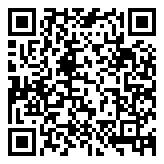Faculty Research Series “Critical Minerals and the Climate: Settler Law and Indigenous Jurisdiction on a New Extractive Frontier” with Professor Dayna Scott
Professor Scott will present ideas from a manuscript in progress. The book project stems from six years of collaboration with a small remote Anishinaabe community in Treaty No.9, Neskantaga First Nation, located on the shores of Attawpiskat Lake in Ontario’s far north. The work focusses on the notoriously-delayed, but always-imminent mining and infrastructure developments in the “Ring of Fire”, poised to become a major mining district. It is essentially an investigation of the encounter between settler law and Indigenous jurisdiction over a decade-long period of struggle for the future of these Anishinaabe and Anishini homelands under intense pressure from extractive operations now pitched as necessary for the transition to a post-carbon future.
Nickel deposits in the so-called “Ring of Fire” have become ground-zero in the battle to define Ontario’s future economy. The rights to the minerals were acquired by Wyloo Metals, a subsidiary of an Australian mining giant, earlier this year, with the company stating that developing the Ring of Fire “will be pivotal in the world’s transition to a lower carbon future”. Nickel is a key component of electric vehicle batteries, which has politicians in Canada rushing to secure “resiliency” of the domestic supply chain ahead of the forecasted surge in global demand, made even more urgent (in their minds) by geo-political developments including the war in Ukraine.
The book is about the encounter between the evolving settler legal order and the expressions and exercises of Indigenous jurisdiction on the ground in Treaty No.9 territory. It is a story about how the settler colonial state primes an extractive frontier, even into the post-extractive moment. From a scholarly perspective, it is a text grappling with the idea of an Indigenous legal culture (one aptly characterized as emerging from the ‘South of the North’ perhaps) engaging with and becoming ‘re-configured’ in the process of encountering and attempting to shape Canadian settler state law. My argument is that alternative conceptualizations of jurisdiction emerging from critical geography and settler colonial studies can energize contemporary political projects to restore and enable Indigenous governing authority in relation to lands and resources, perhaps incrementally, but beginning today.
The manuscript has been invited for the series Global and Insurgent Legalities, edited by Eve Darian Smith and Jonathan Hiller, for Duke University Press.
